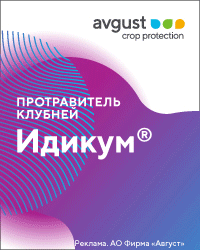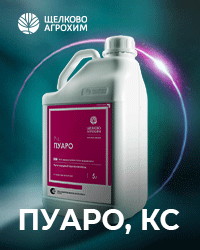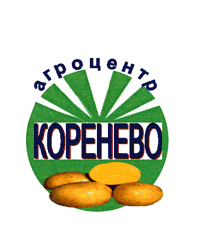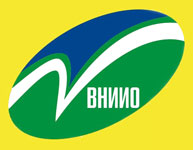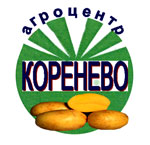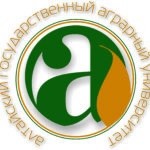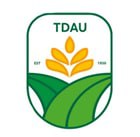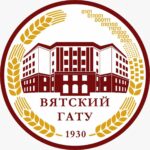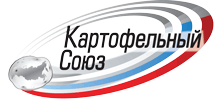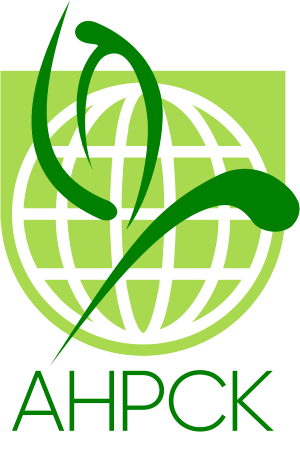UDC 631.8:635.21
DOI: 10.25630/PAV.2019.49.66.001
A.I. Ivanov, Zh.A .Ivanova, O.I. Yakusheva, P.A. Filippov
Late blight is one of the most harmful potato diseases in the North-West of Russia. Today, its negative effects are aggravated by weather and climate changes. The goal of a comprehensive study carried out in the Menkovsky branch of the Agrophysical Institute in 2012–2017 was an assessment of the harmfulness of the late blight pathogen depending on soil-agrochemical, weather and climate conditions. The methodical basis of the research was a prolonged field agrophysical stationary experiment in the system of field and vegetable-feed crop rotations, where potato was cultivated after winter rye and after barley, which, in turn, were grown after perennial grasses. The objects of the study were potato ‘Lomonosovsky’, sod-podzolic soil with different degree of cultivation and fertilizer systems for the culture. Potato ‘Lomonosovsky’ is early ripening variety, its tubers are medium resistant to the late blight agent, and its tops are weakly resistant to it. The sod-podzolic soil had average, good and high cultivation degree. Sandy loam soil in the experiment had the value of pHKCl of 5.2–6.3, the humus content of 2.1–3.7%, the content of mobile P2O5 and K2O compounds of 195–676, 97–298 mg/kg, respectively. In well- and highly cultivated soils, these parameters were maintained by the application of 35 and 70 t/ha of organic fertilizers for potato, respectively. The experimental factors were the degree of soil cultivation (average, good and high) and the level of mineral fertilizer application for a given efficiency of photosynthetically active radiation (PAR efficiency of 1–3%, without fertilizers; PAR efficiency of 2–4%, N80P20K100; PAR efficiency of 3–5%, N120P30K150). In the course of the comprehensive study, the parameters of potato damage by late blight and the level of crop losses were established depending on the agro-climatic soil-agrochemical conditions. Agronomic efficiency of the studied variants of the fertilizer system for potato was high. The level of tuber yield increase and payback of 1 kg of fertilizers’ active substances reached 33–58% and 8.3–11.6 cereal units (CU) for the mineral system, 25–45% and 3.9–8.0 CU for the organic one, and 33–79% and 3.8–6.7 CU for the organic and mineral fertilizer system. Under non-epiphytotic conditions (2 of 3 years of the observation), against the background of low and moderate damage rates, the total yield loss was 5%, and the soil improvement and organic and mineral fertilizer application reduced them by 30–80%. Against an epiphytotic background, repeated 1 time in 3 years, the damage of tops and potato tubers increases by a factor of 4.3 and 6.1, the intensity of the damage grew 2.8 and 3 times, and the development increases by a factor of 12 and 17.5 times, respectively. In the epiphytotic years, yield losses increased 5.2 times (up to 26%), and the mineral fertilizer system reduced them only in medium cultured soil. Against this background, increasing the soil cultivation degree and organic fertilizer doses to a high level is ineffective.
Key words: potato, organic fertilizer, mineral fertilizer, late blight, damage, epiphytoty, yield, yield loss
A.I. Ivanov, DSc (responsible for correspondence), professor, corresponding member of Russian Academy of Sciences, chief research fellow, head of department of physical and chemical melioration and experimental work, Agrophysical Research Institute (FSBSI API), chief research fellow, head of laboratory of organic and environmental farming in the North-West Сentre of Interdisciplinary Researches of Problems of Food Maintenance (N-W CIRPFM). E-mail: ivanovai2009@yandex.ru
Zh.A .Ivanova, PhD, senior researcher of Agrophysical Research Institute (FSBSI API). E-mail: ivanovai2009@yandex.ru
O.I. Yakusheva, PhD, ingineer. All-Russian Research Institute of Phytopathology (FSBSI ARRIF). E-mail: o.vladykina@inbox.ru
P.A. Filippov, engineer of Agrophysical Research Institute (FSBSI API)
- Ivanov I.A., Ivanov A. I., Ivanova V. F. Scientific and production bases of the fertilizer system in the non-Chernozem zone. Velikiye Luki. 2002. 216 p. (In Russ.).
- Production, study and application of fertilizers based on bird droppings. Under the general editorship of A. I. Ivanov and V. V. Lapa. SPb. FGBNU AFI. 2018. 317 p. (In Russ.).
- Ivanov A. L. et al. Recommendations for the design of integrated application of chemical means in resource-saving technologies of adaptive landscape agriculture. Moscow. 2010. 464 p. (In Russ.).
- Konashenkov A. A. et al. Agrotechnical aspects of realization of the bioclimatic potential of the North-West of Russia. Agrophysics. 2016. No. 2. Pp. 35–44 (In Russ.).
- Malyuga A. A. Biological bases of potato protection in the forest-steppe of Western Siberia from the main soil-tuberous infections: abstract of thesis of Dr.Sci. M. 2008. 35 p. (In Russ.).
- Malyuga A. A. Yakimenko V. N. Influence of potash fertilizers on the susceptibility of potato black scurf on potato in Western Siberia. Bulletin of plant protection. 2013. No. 3. Pp. 45–50 (In Russ.).
- Nesterova Yu. A., Melkumova E. A., Horsheva T. E. Potato protection from common and harmful phytopathogens in the Voronezh region. Bulletin of the Voronezh state agrarian University. 2011. No. 2. Pp. 15–23 (In Russ.).
- Ivanyuk V. G. Late blight of potato and ways to reduce its harmfulness. Plant protection and quarantine. 2009. No. 5. Pp. 52–55 (In Russ.).
- Zolfaghari A. et al. Late blight and alternariosis of potato and tomato under abnormal weather conditions in the Moscow region. Plant protection and quarantine. 2011. No. 12. Pp. 40–42 (In Russ.).
- Ivanov A. I., Konashenkov A. A. Reducing the dependence of agriculture in the North-West of Russia on weather and climate anomalies: problems and solutions. Melioration and water management. 2018. No. 5. Pp. 32–37 (In Russ.).
- Ivanov A. I. et al. Features of field research methodology at the present stage. Agrophysics. 2017. No. 2. Pp. 9–19 (In Russ.).
- Methods of research on the protection of potatoes from diseases, pests, weeds and immunity. M. VNIIKH. 1995. 105 p. (In Russ.).
PDF (Rus)
For citing: Potato responsiveness to fertilizers and crop losses from late blight in the North-West of Russia. A.I. Ivanov, Zh.A. Ivanova, O.I. Yakusheva, P.A. Filippov. Potato and vegetables. 2019. No8. С. 23-26 (In Russ.). https://doi.org/10.25630/PAV.2019.49.66.001

